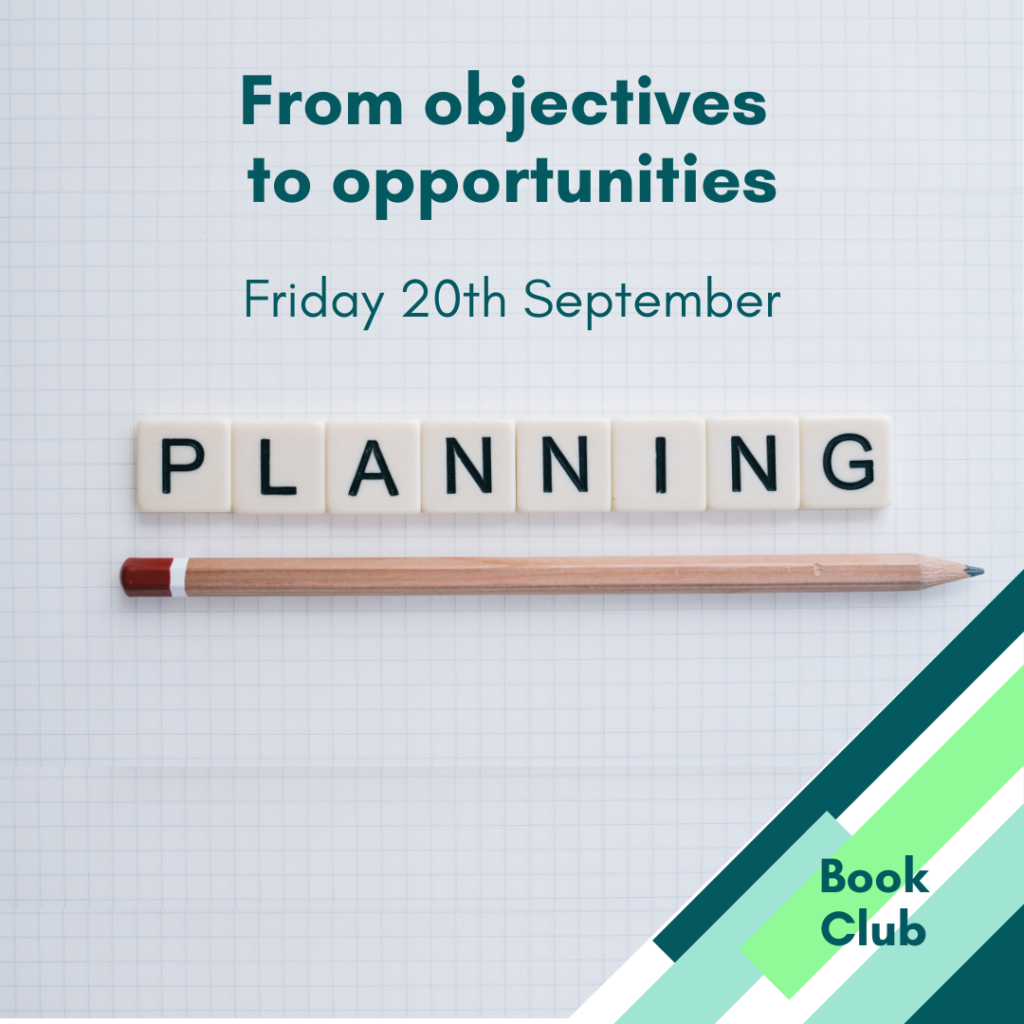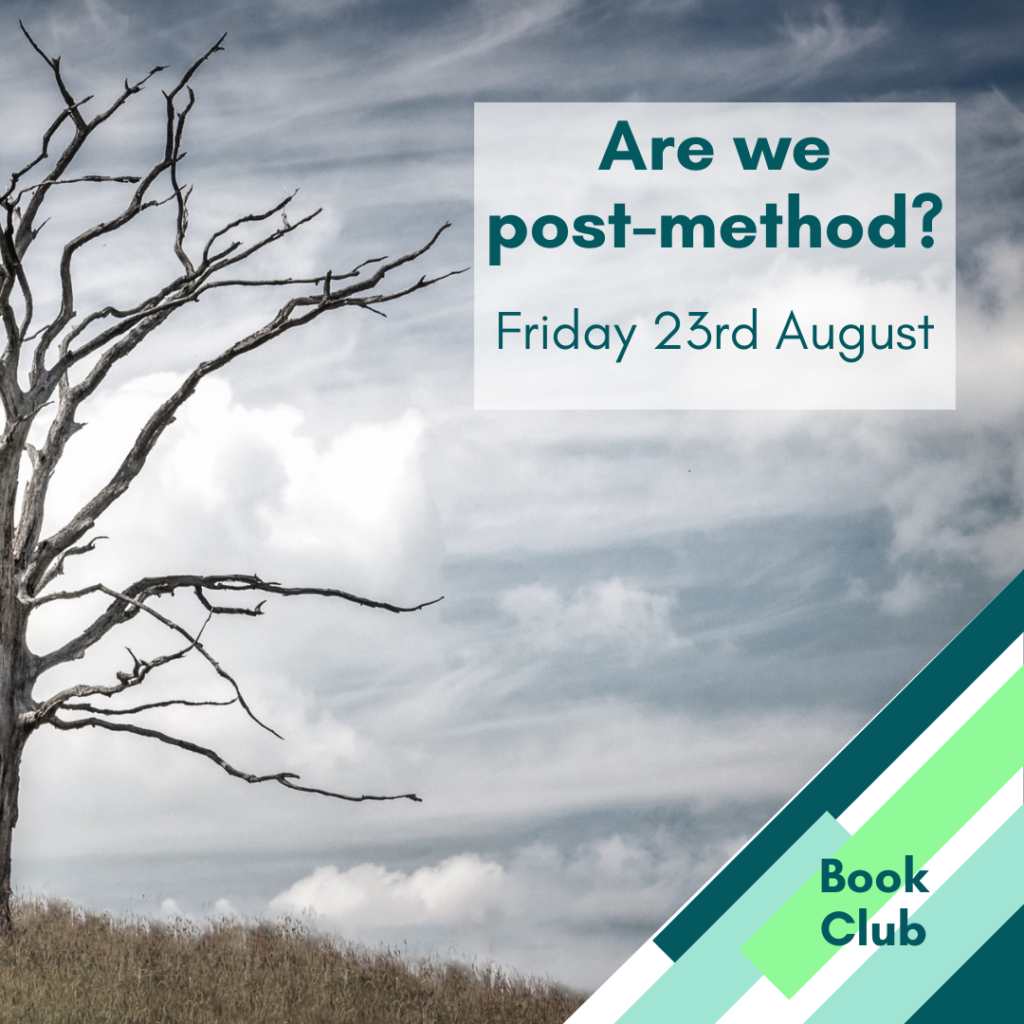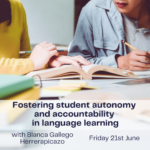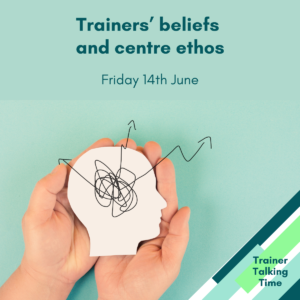Today’s chat was based around an article from Jason Anderson, Affordance, learning opportunities, and the lesson plan pro forma in which he suggests moving away from objectives-based outcomes in lesson planning. An interesting factoid is that the article was published before Anderson’s Trinity CertTESOL Companion in which he talks primarily about sytems- and skills-focused aims.
One takeaway from the session was the need to review our pro formas periodically to ensure they are meeting the needs they are designed for.
Experience
We suggested that Anderson’s approach may be more appropriate for experienced teachers, as those on pre-service courses often need more ‘black and white’ guidance on lesson planning. However, we liked the idea of using ‘may’ when considering learning outcomes rather than being strictly prescriptive and saying, “Learners will do this.” This led on to a discussion around planning communicative events which encourage learners to use the target language more effectively – learners will often use language they are more comfortable with but if we are to enable them to improve their language skills, there should be a need to use new input.

Emerging needs
Another challenge we identified for less experienced teachers is noticing and taking advantage of emerging needs during the lesson. We suggested that trainee teachers are often hyper-focused on other things when teaching observed lessons and are less adept at picking up on the ‘teachable moments’ which can occur. This may not be limited to trainee teachers though, and we discussed strategies for dealing with in-service teachers who are ‘teaching the plan, not the learners’. These strategies included directing them to concrete support to improve their skills, such as Danny Norrington-Davies and Richard Chinn for support in working with emergent language.
Allowing things to go wonky
Anderson proposes another change in relabelling ‘potential difficulties / problems’ as ‘possible occurences’. We agreed that this allows for a more balanced reflection of what may happen in the lesson and could encourage teachers to consider positive modifications to the plan (i.e. anticipating and making the most of teachable moments) rather than focusing on the issues they may face.
Exposure to the classroom
We also considered the role of reflective practice and discussed how trainee teachers can often be overly demanding of themselves when reflecting on their observed lessons. We suggested that moving towards an opportunities approach could enable teachers to be more positive on the lesson experience, focusing on what the learners did well, rather than what they did badly as a teacher. We also suggested that teachers need more exposure to the classroom as part of their training, as those who are new to the profession have limited experience of what (good) teaching is. Additionally, we proposed renaming ‘demo’ lessons as this suggests that they are ‘best’ practice rather than a model of an everyday classroom.
Lesson planning for developing teachers
We all know that teachers rarely write detailed plans unless they are following a course or taking part in an in-house observation and we talked about alternatives to teachers producing a full plan for developmental observations through the year. One suggestion was for a document which provides a background and context for the lesson and for the teacher and observer to discuss, either before or after the lesson, what informed their choices in planning the lesson. For teachers taking higher level qualifications, such as the Trinity DipTESOL, there is a requirement to ‘unpack’ their teaching and put their thought processes and knowledge of ELT onto paper for their assessed lessons but doing this in a conversation would alleviate the paperwork for in-house observations.
Happy fluff
One rationale for identifying systems- and skills-based objectives is to assess the learning that is taking place in the lesson and we considered the danger of teachers not planning lessons effectively and filling them with ‘happy fluff’. We identified the need to reaffirm the centre ethos at the start of the year, potentially with a group discussion on what good practice is and what our aims are for our learners and for ourselves. The topic of evaluation also came up and the challenge of encouraging a teacher to develop when they consistently receive good feedback from their learners – with the concern that learners are enjoying themselves but perhaps haven’t critically evaluated their language development. The point that this is also a business decision was raised: if learners are happy, they’ll keep coming – and some institutions may be more interested in that than the learning outcomes.
Reflection questions
- When did you last evaluate your lesson planning pro forma?
- What background knowledge do teachers need to effectively use an opportunities-based approach?
- Can we develop new teachers’ awareness of teachable moments or does it only come with experience?












